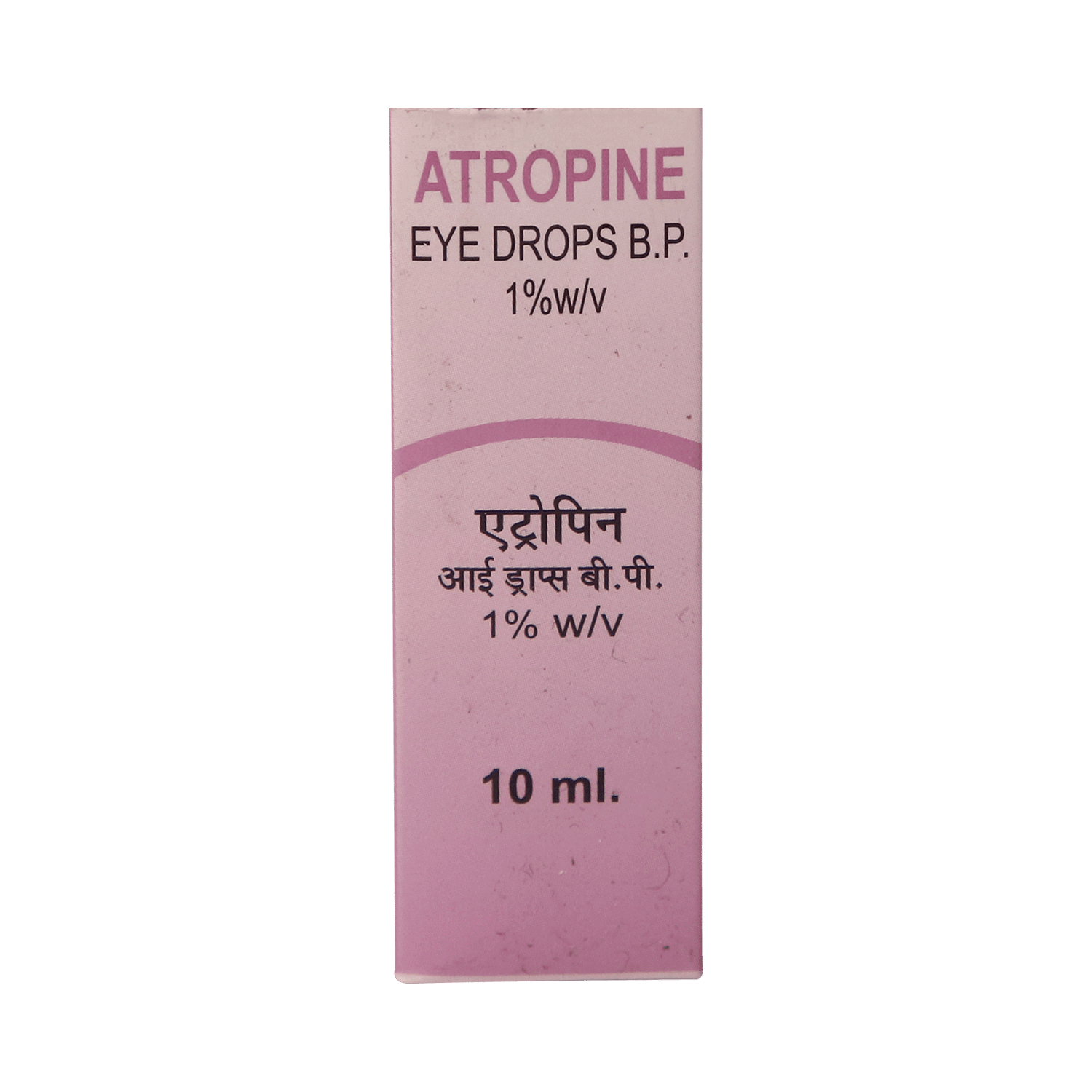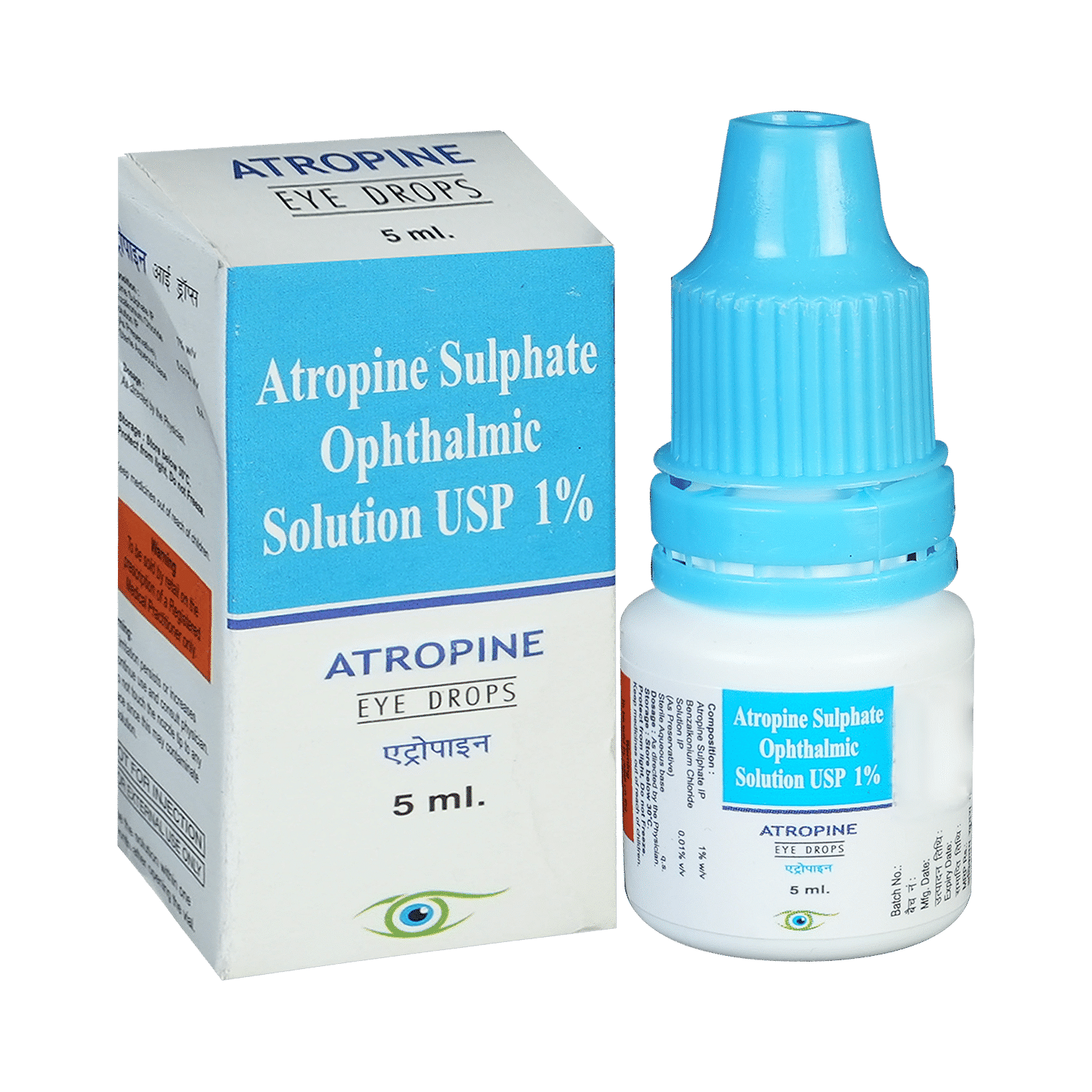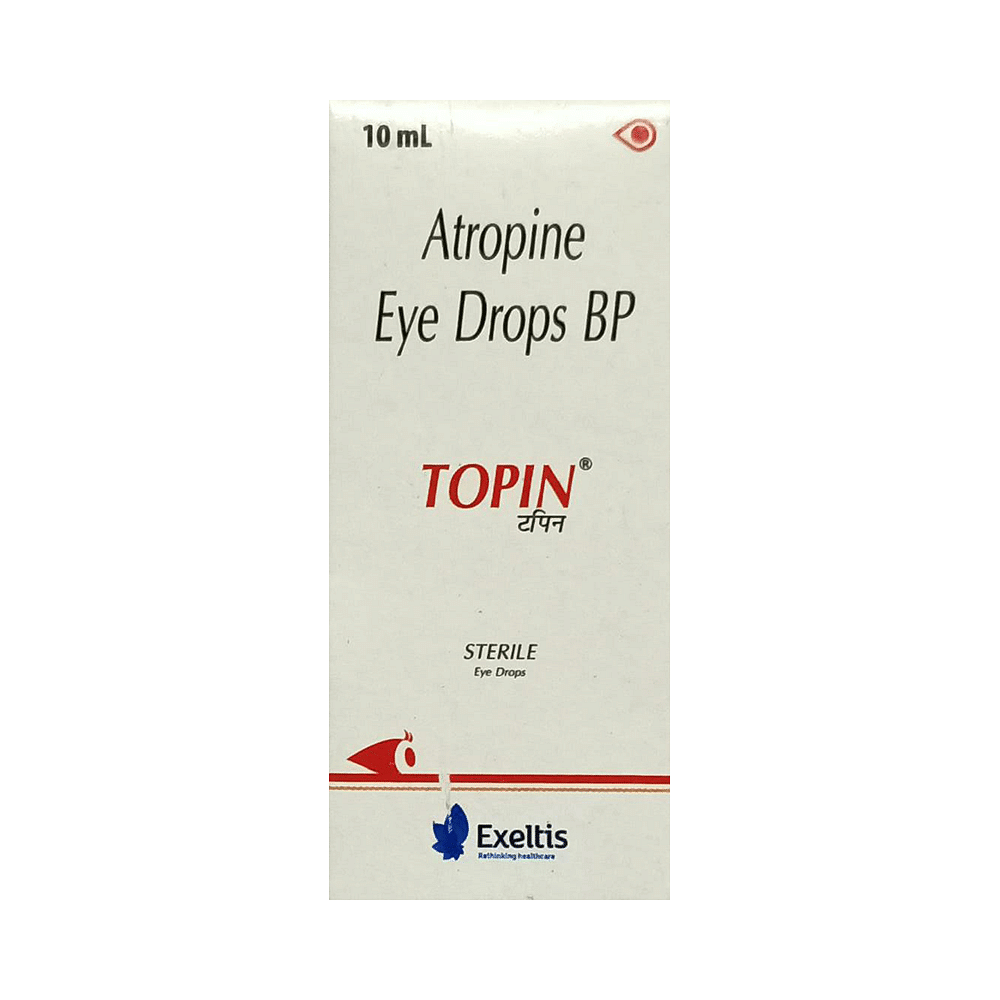
Atromet Eye Drop
Manufacturer
Sun Pharmaceutical Industries Ltd
Salt Composition
Atropine (1% w/v)
Key Information
Short Description
Atromet Eye Drop is used to treat myopia and inflammation in the eyes (uveitis or iritis). It is also used to induce cycloplegia for eye examination and diagnose eye problems like blurred vision or squint in children.
Dosage Form
Eye Drop
Introduction
Atromet Eye Drop is an anticholinergic medication used to treat myopia and inflammation in the eyes. It is also used to induce cycloplegia for eye examination and diagnose eye problems like blurred vision or squint in children. It works by making the pupil of your eye larger and relaxes the muscles in your eye, allowing proper examination. It also helps reduce inflammation or swelling in the eye (uveitis or iritis).
Directions for Use
This medicine is for external use only. Use it in the dose and duration as advised by your doctor. Check the label for directions before use. Hold the dropper close to the eye without touching it. Gently squeeze the dropper and place the medicine inside the lower eyelid. Wipe off the extra liquid.
Safety Information
Side Effects
No common side effects listed.
Alcohol Warning
No interaction found/established
Breastfeeding Warning
Atromet Eye Drop is probably unsafe to use during breastfeeding. Limited human data suggests that the drug may pass into the breastmilk and harm the baby. Milk secretion may decrease.
Pregnancy Warning
Atromet Eye Drop may be unsafe to use during pregnancy. Although there are limited studies in humans, animal studies have shown harmful effects on the developing baby. Your doctor will weigh the benefits and any potential risks before prescribing it to you. Please consult your doctor.
Interacting Medicines
Donepezil Rivastigmine Galantamine Amisulpride
How it works
Atromet Eye Drop is an anticholinergic medication. It works by making the pupil of your eye larger and relaxes the muscles in your eye, allowing proper examination. It also helps reduce inflammation or swelling in the eye (uveitis or iritis). Using Atromet Eye Drop dilates the pupils and temporarily paralyzes the focusing muscle inside the eye. It also relaxes the eyes' focusing mechanisms. This treats myopia.
Quick Tips
Use it as suggested by the doctor. It may cause blurred vision. Do not drive or do anything that requires mental focus until you know how this medicine affects you. Generally it is not advised to wear contact lenses but if you have to wear then wait for 15 minutes to reuse. You may be asked for regular eye checkups before and during the treatment. Stop using medication or inform your doctor if you notice eye irritation, redness, swelling of the eyelids, and sensitivity to bright light.
Related Medicines

Atropine 1% Eye Drop

Atropine Eye Drops

Atrone 1% Eye Drop

Topin Eye Drop

Atrop Eye Drop

Kaitro Eye Drop

Bellpino Atrin 1% Eye Drop

Bellpino Atrin 1% Eye Drop

Atrosun Eye Drop

Topin Eye Drop
Frequently asked questions
In what condition should Atromet Eye Drop not be used?
Atromet Eye Drop should not be used if you have or suspect you have glaucoma (high pressure in the eye) since it can increase the pressure in the eye, or if you are having any eye infection.
Does Atromet Eye Drop cause blurred vision?
When you instill Atromet Eye Drop for the first time, it may make your eyes watery and could lead to temporary blurred vision. However, this usually clears quickly. Make sure you can see clearly again before driving or using tools or machines.
When should I seek a doctor’s advice?
You should contact your doctor immediately if you develop an eye infection, conjunctivitis, or an eyelid reaction. Also, inform the doctor if you have an eye injury or eye surgery. Discuss with your doctor if you need to continue using Atromet Eye Drop.
Can I use Atromet Eye Drop if I wear contact lenses?
If you typically wear contact lenses, do not wear them while you are using Atromet Eye Drop. You can re-insert your lens 15 minutes after using Atromet Eye Drop. Contact your doctor if there is any eye irritation that persists.
Can I use any other eye drops along with Atromet Eye Drop?
Always consult your doctor before using any other eye drops along with Atromet Eye Drop. It is advisable to give a gap of at least 10-15 minutes between the two medications.
What is the usual dose of Atromet Eye Drop?
The usual dose of this medicine is one to two drops daily. Consult your doctor in case of any doubts.
What is the most important thing to keep in mind while using Atromet Eye Drop?
While using this medicine, if you develop any irritation, pain, swelling, excessive tear production, or light sensitivity in the eyes, remember to flush the treated eye(s) with lots of water (room temperature) for at least 15 minutes. Stop using the eye drops and contact your doctor immediately.


